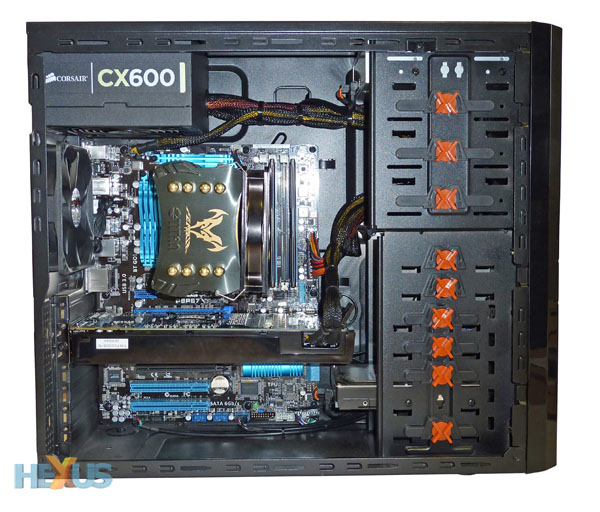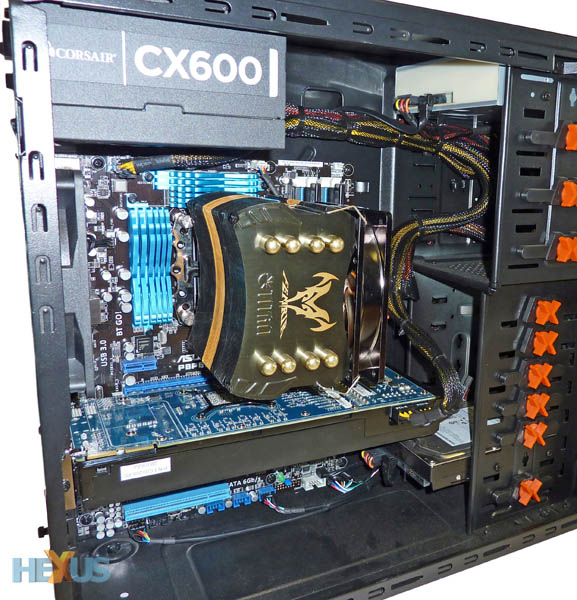Peering inside

Housed inside a £30 Xigmatek Asgard chassis, which belies its cheap-as-chips asking price, the system feels solid, though it's a shame that USB 3.0 connectivity isn't included on the front-facing side.
Wired2Fire includes a foam supports for the graphics card, to stop it bending in transit, and it must be removed before switching on. Thankfully, a note is included to this effect.

Whip it open and the build is clearly shown. Wired2Fire isn't working with a whole heap of space here but one oversight is the location of the hard-drive. It's positioned such that a second, CrossFire-forming HD 6970 cannot be added without first relocating the drive; the chassis is simply not wide enough to take both together.
A top-mounted PSU - and 600W is ample to drive two HD 6970s - gives easy access to the central section, should you wish to upgrade certain components, and the company adds in a rear-exhausting fan that's not included with the chassis alone.

A similar intake fan balances internal airflow, and while the build could be a little neater in certain places, there are no missing connectors or ill-positioned wires.
A couple of USB 3.0 ports are available through the I/O section and two onboard headers provide the option - not included here - of using an ASUS 'breakout' USB 3.0 box.
Operating system
Wired2Fire doesn't include much more than a vanilla build of Windows 7 Premium 64-bit; there's no backup software and a healthy lack of bloatware. We reckon it makes sense to have a basic image of the as-shipped system, one that can be moved to an external drive, because it may be difficult for some users to bring the machine back to factory specification should a serious error occur.
The Hellspawn looks good on paper and is built sensibly. How does it perform?









